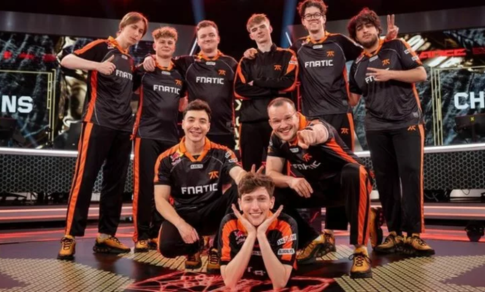Since its founding in 2004, Fnatic has become a cornerstone of the esports landscape, amassing loyal fans, multiple rosters, and a rich competitive legacy. The UK-based organisation experienced a landmark year in 2025, competing internationally, securing key partnerships, and expanding operations. Among its initiatives was the launch of the Fnatic Crew program in collaboration with Red Bull, designed to support emerging UK creators in building their personal brands and engaging with the broader gaming community.
Competitively, Fnatic had a strong showing in VALORANT, finishing as runners-up at Masters Toronto 2025, the Esports World Cup, and VALORANT Champions Paris. Despite narrowly missing out on titles, the team’s consistent top-tier performances have reinforced VALORANT as a central pillar of Fnatic’s esports identity. Founder and CEO Sam Mathews highlighted the roster’s potential, emphasizing that with enhanced focus on sports psychology and performance consistency, the squad could dominate in the coming year.
The organisation also experienced changes, with long-time player Timofey ‘Chronicle’ Khromov departing for Team Vitality and Sylvain ‘Vepaj’ Pattyn joining the roster. In Counter-Strike 2, Fnatic secured sufficient VRS points to compete at the StarLadder Budapest Major 2025, presenting another opportunity to make a mark internationally. In League of Legends, Fnatic faced challenges, finishing third and fourth in the LEC 2025 Winter and Spring splits and ultimately placing 15th at Worlds 2025, highlighting the competitive gap between Western teams and Eastern powerhouses like Korea and China.
Outside of competitions, Fnatic expanded its presence in the esports ecosystem through partnerships, sponsorships, and entertainment-focused initiatives. The Fnatic Crew program, brand collaborations with companies such as McDonald’s, and the launch of a subscription-based esports service exemplify the organisation’s efforts to merge competitive play with content creation. Mathews emphasized that fostering creators alongside competitive success is key to sustaining and growing the esports industry.
Looking to 2026, Fnatic plans to continue balancing competitive pursuits with entertainment-driven projects. The organisation aims to participate in emerging games, explore external ventures like Fnatic Crew, and strengthen its global presence. With evolving esports structures and new titles on the horizon, 2026 offers an opportunity for Fnatic to build on its successes and further cement its position as a leading esports organisation.








ADD A COMMENT :